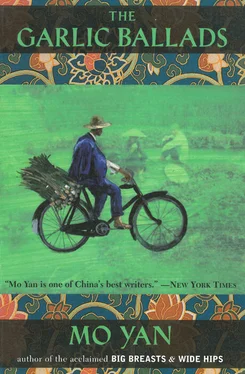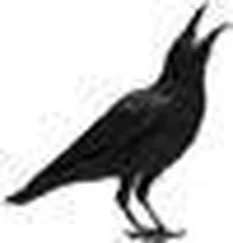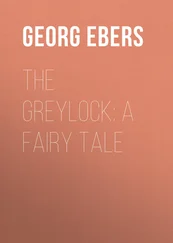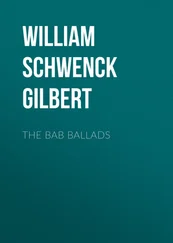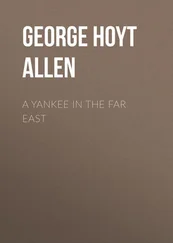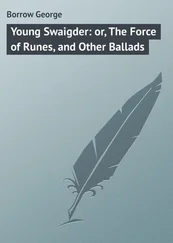Mo Yan
The Garlic Ballads
Northeast Gaorni Township:
I was born there, I grew up there;
Even though there was plenty of misery,
These mournful ballads are for you.
Novelists are forever trying to distance themselves
from politics, but the novel itself closes in on politics.
Novelists are so concerned with “man’s fate” that they
tend to lose sight of their own fate. Therein lies their
tragedy.
— Joseph Stalin
Pray listen, my fellow villagers, to
Zhang Kous tak of the mortal world and Paradise!
The nations founder, Emperor liu of the Great Han
Commanded citizens of our county to plant garlic for tribute….
— from a ballad by Zhang Kou, Paradise County’s blind minstrel
1.
“Gao Yang!”
The noonday sun beat down fiercely; dusty air carried the stink of rotting garlic after a prolonged dry spell. A flock of indigo crows flew wearily across the sky, casting a shadowy wedge. There had been no time to braid the garlic, which lay in heaps, reeking as it baked in the sun. Gao Yang, whose eyebrows sloped downward at the ends, was squatting alongside a table, holding a bowl of garlic broth and fighting back the waves of nausea rising from his stomach. The urgent shout had come in through his unlatched gate as he was about to take a sip of the broth. He recognized the voice as belonging to the village boss, Gao Jinjiao. Hastily laying down his bowl, he shouted a reply and walked to the door. “Is that you, Uncle Jinjiao? Come on in.”
This time the voice was gentler. “Gao Yang, come out here for a minute. I have to talk to you about something.”
Knowing the consequences of slighting the village boss, Gao Yang turned to his blind eight-year-old daughter, who sat frozen at the table like a dark statue, her black, beautiful, sightless eyes opened wide. “Dont touch anything, Xinghua, or you might scald yourself.”
Baked earth burned the soles of his feet; the intense heat made his eyes water. With the sun beating down on his bare back, he scraped caked-on dirt from his chest. He heard the cry of his newborn baby on the kang, a brick platform that served as the family’s bed, and thought he heard his wife mumble something. Finally, he had a son. It was a comforting thought. The fragrance of new millet drifted up on a southwestern breeze, reminding him that harvest was approaching. Suddenly his heart sank, and a chill worked its way up his spine. He wanted desperately to stop walking, but his legs kept propelling him forward, as the pungent odor of garlic stalks and bulbs made his eyes water. He raised his bare arm to wipe them, confident that he wasn’t crying.
He opened the gate. “What is it, Uncle?” he asked. “Ow! … Mother—!” Emerald bits streaked past him, like millions of green garlic stalks swirling in the air; something struck his right ankle, a dull, heavy, gut-wrenching blow. Momentarily stunned, he closed his eyes and assumed that the sound he heard was his own scream as he slumped to one side. Another dull thud behind his left knee. He screamed in pain— there was no denying it this time — and pitched forward, winding up on his knees on the stone steps. Dazed, he tried to open his eyes, but the lids were too heavy, and the pungent, garlicky air drew tears. Still, he knew he wasn’t crying. He raised his hand to rub his eyes, only to discover that his wrists were snared painfully by something cold and hard; two faint metallic clicks knifed into his brain.
Finally he opened his eyes. Through the film of tears — I’m not crying, he thought — he saw two policemen in white tunics and green pants with red stripes down the legs; they towered over him, pale smudges on their pants and dark stains on their tunics. But what caught his attention were the pistols and the dark nightsticks that hung from wide, cordovan-colored, artificial-leather belts cinching up their tunics. The buckles glinted in the sun. He looked up into the mens expressionless faces, but before he could utter a sound, the man on the left waved a sheet of paper with an official red seal in front of him and said with a slight stammer, “Y-you’re under arrest.”
That was when he noticed the shiny steel bracelets on his sunburned wrists. They were linked by a slack, heavy, silvery chain that swayed lazily when he raised his hands. A powerful shudder wracked him. The blood flowed sluggishly through his veins, and he felt himself shrinking: his testicles retreated into his body and his guts knotted up. Chilled drops of urine on his thighs informed him that he was peeing his pants, and he tried to hold it back. But the lilting, mournful cries of the blind minstrel Zhang Kous two-stringed erhu reached his ears, and his muscles turned slack and useless; an icy stream of urine ran down his leg, soaked his buttocks, and washed the callused soles of his feet as he knelt. He actually heard it slosh around in his crotch.
The policeman on the left took Gao Yang’s arm in his ice-cold hand to help him up. Another slight stammer. “G-get up.”
Still dazed, Gao Yang reached for the policeman’s arm, but the handcuffs, clanking softly, dug into his flesh and forced him to let go. Fearfully, he held his arms stiffly out in front, as if cupping a precious, fragile object.
“G-get up!” The policeman’s order rang out. He struggled to his feet, but was no sooner standing than a searing pain tore through his ankle. He lurched sideways and fell to his hands and knees on the stone steps.
The policemen grabbed him under the arms and picked him up. But his legs were so rubbery that his gangly frame dangled in their grasp like a pendulum. The policeman on his right drove his knee into Gao Yang’s tailbone. “Stand up!” he growled. “What happened to the hero who demolished the county offices?”
The comment was lost on Gao Yang, but the rock-hard knee against his tailbone helped him forget the pain in his ankle. With a shudder he planted his feet and stood up. The policemen loosened their grip, and the one with the stammer said softly, “G-get moving, and h-hurry.”
His head was swimming, but he remained confident that he wasn’t crying, even as hot tears welled up and spilled over to cloud his vision. The handcuffs dug deeply into his wrists each time he was shoved forward, and he suddenly — finally — realized what was happening. He knew he had to find the will to force his stiffened tongue to move: not daring to address his tormentors, he gazed pitifully at Gao Jinjiao, who was cowering beneath an acacia tree, and said, “Uncle, why are they arresting me? I haven’t done anything wrong.
Wails and sobs followed. This time he knew he was crying, even though no tears flowed from his now dry, burning eyes. He must plead his case to the village boss, who had tricked him into coming outside in the first place. But Gao Jinjiao was rocking back and forth, bumping against the tree like a penitent little boy. A muscle on Gao Yang’s face twitched. “I haven’t done anything, Uncle, why did you trick me like that?” He was shouting. A large bead of sweat on the village boss’s forehead refused to roll down. With his yellow teeth bared, he looked like a cornered man about to break and run.
The policeman again drove his knee into Gao Yang’s tailbone to get him moving. “Comrade Officer,” he protested, taming to look into the man’s face, “you ve got the wrong man. My name’s Gao Yang. I’m not—”
“W-we’ve got the right man,” the stammerer insisted.
“My name’s Gao Yang.
“Gao Yang is who we want!”
“What did I do?”
“At noon on May twenty-eighth you were one of the leaders of a mob that demolished the county offices.”
Читать дальше
